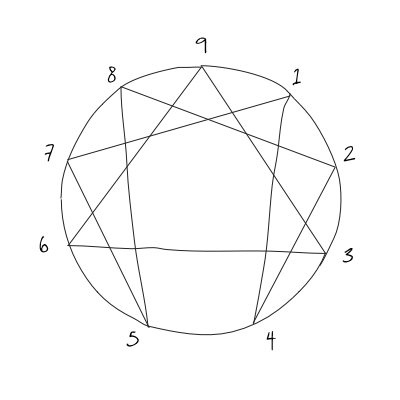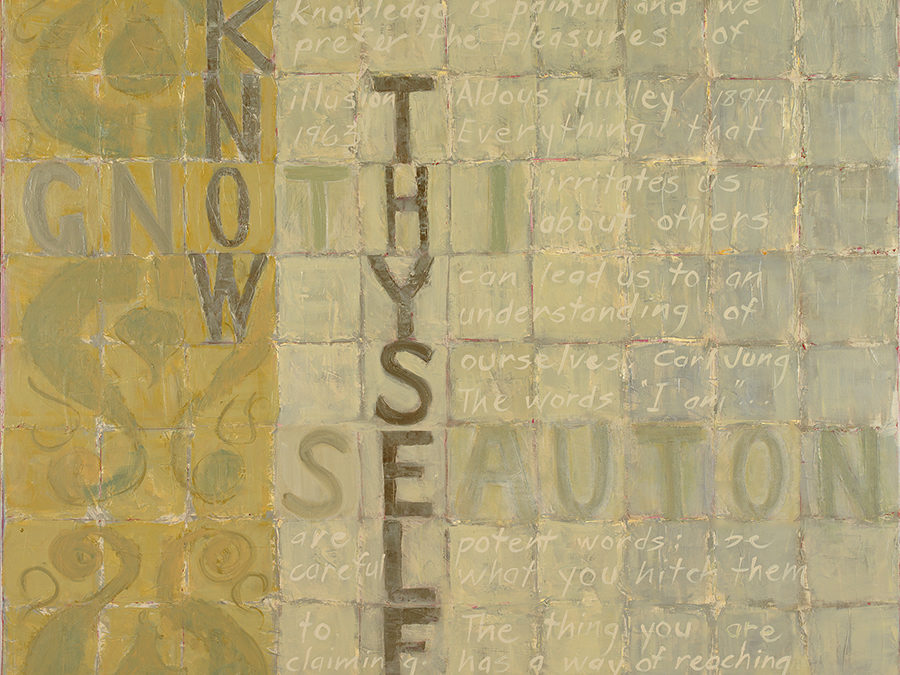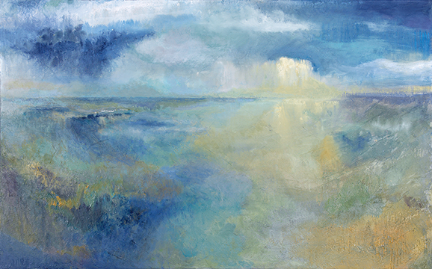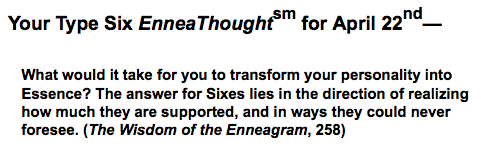
by Sandy | May 18, 2018 | Best Practices, MBTI Facts
The question:
Do you have any advice for procrastinating ENFPs?
Tips:
As always be wary of “one size fits all” solutions. The best answers are ones that fit your needs and motivational strategies. Here are my top five tips I use to manage my own ENFP procrastination. Please use any that resonate with you and most definitely figure out what really works best for you.
- I create what I call “forcing mechanisms” with a solid deadline. An example of this includes registering for art shows. If left to my own devises without a specific goal for artistic endeavours, I would do more thinking about painting than actual painting. Signing up for a show several months before a “set in stone” date helps galvanize me into action. I can visualize the space where I will hang my paintings, and what I want to work on so that the whole show hangs together. It is fun and energizing to have a plan.
- In certain circumstances I find someone to help me with the task or project at hand. As an extrovert having someone to talk with me through each step can be a welcome lifeline and keep me in motion. This works especially well for things such as purging files and establishing order in my office or studio.
- I also use other external mechanisms to help me with accountability. When I have a regular session with a coach, a trainer, a buddy or mastermind group it is a way to get clear on my priorities and barriers to getting into action. The very act of articulating my goals and the actions I intent to take to achieve them helps to keep me on track.
- For years I was addicted to lists and would visit them regularly to make sure I was crossing off enough items so that I would reach a deadline in time. My current list is 2 pages long – recently reduced from an overwhelming 4 pages.
- Acknowledging the need for time to let things percolate and the sense of urgency to build helps eliminate the need to beat myself up for procrastinating. BTW This self- flagellation is a total waste of time. When I try to start early I often cannot focus or generate ideas. Over the years I have come to trust that the sudden urge to clean my desk or read a book may be just what I need to do in this moment and that tomorrow which is another day closer to the deadline will help get the seemingly requisite sense of urgency to work it’s magic and help me get on the kind of roll that only happens close to the last minute.
Okay – over to you. What are your top tips?

by Sandy | May 17, 2018 | Enneagram
In self-development work it seems to me that people often fall in love with the first assessment tool that offered them some insight. The Enneagram is that tool for me. This model of nine worldviews and ways of focusing attention was the first window that allowed me to see that how I was in the world made sense in the larger scheme of things. At the same time it held up a mirror so that for the first time I understood the concept of “blindspot” and how mine played out in my thinking and behaviour.
During a visit to Victoria British Columbia I attended an Introduction to the Enneagram workshop hosted by Kira MacDuffee and Edward Colley. Both Kira and Edward use the Enneagram as a lens in their work with clients as Clinical Counsellors so they have an intimate familiarity with the model.
While their presentation was chock full of useful and practical applications of the the model what I appreciated most was just how grounded their teaching was in the deeper meanings offered by the Enneagram. One of the things that initially appealed to me about the Enneagram was illustrated by the respectful approach taken by my first teachers. Kira and Edward made a point of setting the training in a historical context and helping us make the distinction between finding our type as an orientation – a home base and using it as yet another way to excuse or restrict ourselves. They reinforced the importance of not using the model label but rather to understand possible dynamics between essence qualities and how our personality acts to compensate for loss of connection with that essence quality.
The participants in the workshop responded to this approach willingly engaging in exercises designed to mark out how aspects of the various types are alive for each of us. One woman, an Enneagram Four expressed the impact of taking an online Enneagram assessment, ” When I got my Enneagram results it was one of the few times I’d felt seen and by a computer at that!”
The reminder that the Enneagram is a map of how we have lost our connection to our central nature, a look at our strategy to avoid pain was enough to remind me why I fell in love with it in the first place. It has helped me develop compassion for myself and others.
Thank you Kira and Edward

by Sandy | May 15, 2018 | Enneagram
A reader asks “What do you think about a (F) 4 and a (M) 5 in relationship?”
It is not the best use of the Enneagram or any model of personality to use it as a predictor. However the Enneagram can be a resource to understand a particular dynamic that may be currently influencing the interaction between two people or that might potentially influence their relationship. Don Riso and Russ Hudson’s work lays out Levels of Development for each type. All types can be in relationship with any other type. The biggest influencer is the health of an individual. Health in this sense has to do with what level of development the person “hangs out in” the most – how aware they are about the impact they are making on others, how mindful they are in the present and how much they take responsibility for their actions. Anyone addicted to the hero, villain or victim role can prove toxic to any relationship.
Most of the time people don’t drive out the Enneagram in their everyday conversations about how they are getting along. When something does arise that interrupts the connection or natural flow between two people, the Enneagram shines a bright light on what is in play and can show a way to shift the energy of what is happening.
Both Four and Five are withdrawing types, so they can be caught up in their own interior world. For the Five that world is one of intellectual abstraction. The Five pulls back from the impingement of emotional entanglement to observe and gather information. The Four is all about understanding the territory of the heart and the subtleties of emotional tonality. The trick is to find the way into each others world. The Four will need to give space for the Five and modify their considerable demand for attention. Consider the alternative – the more the Four demands a “connection” the further the Five retreats to protect their need for the safety of emotional detachment.
The Five can benefit hugely from understanding the world of feelings and learning to recognize and stay with their own feelings. While Fours and Fives are on the opposite poles of emotional connection, they have the most to learn from each other. This pairing can go either way ending with both parties contracting further into their own interior realm or meeting in the middle and consequently balancing out their own tendencies.
For more information see Helen Palmer’s “The Enneagram in Love and Work”.
As a final comment – my aunt once gave me a life lesson for which I am grateful. She questioned me about the word “relationship”. She said that it was LOVE that mattered. That shifts the conversation and the kinds of things that matter, where you focus your attention and what you are willing to do to nurture the love.

by Sandy | May 9, 2018 | Other Personality Assessments
Question:
I was wondering if you could give any advice on the best way to become a Personality Type professional?
An answer that is 100% opinion:
Hmmmm… this question brings even more questions to mind.
Why?
What is important to you about this?
Is a singular focus such as type professional even a viable option in this day of shrinking training dollars?
If the MBTI, for example, is a tool, what is the ideal context for someone to invest in developing themselves in this area through training?
My thinking on this is that the MBTI or DISC or Enneagram or Social Styles or Insights are all wonderful tools that are adjunct to other areas of expertise. In an organizational setting for example these tools can be of value for team building and / or for leadership development. The question I have is what else do you need to bring to the table in order to facilitate this kind of experience so that the corporate sponsor gets the benefit from their investment. It seems to me that it is a challenge to rely on knowledge of a tool alone. These tools are best used in context. If you have experience working in an HR capacity or as a consultant or coach with additional experience working in organizational settings and in training design, then you begin to have something to bring to the table. It is a hard “go” to come armed only with an assessment tool and have someone recognize that or you as a solution to a current problem.
Having laid out my cautionary message, if you are truly interested in any of these tools, I would recommend immersion until you have ownership of the theory combined with a long list of experiences using the tool with others. It takes time and experience to see that how something may appear to be in written form often takes on a different flavour in the nuanced world of real life. Once you have ownership of one tool you may see that there is another assessment that will compliment the work that you are doing and the needs of your clients: for instance, I found that using the MBTI together with the Hay Group’s Emotional Competency Inventory provides a solid platform to support leadership development.
For every type tool there will be a training that suits your needs best. Some things to consider are reputation, location, advanced training and support as well as cost of the training organization you are considering. Since I am a Canadian, I often make decisions based on what is offered in Canada and whether I prefer what is available in the US. (e.g. this would be Psychometrics for the MBTI and a trip to an Enneagram teacher of choice to the US.) This is partially personal preference as well as what fits the needs of your clients.
If you collaborate with other professionals who LOVE and use DISC with their clients, you might want to consider how much work you will be doing together and the value of having a common language. Research your options by talking to the people you wish to collaborate with, by researching what is already in place in the organizations you work for or hope to work with.
Finally investigate the trainings offered by the publishers of the tool that interests you, find out about other specialized training organizations that may offer training (I am thinking here of the great work done by Otto Kroeger Associates) and type specific associations such as the Association for Psychological Type International.

by Sandy | Apr 22, 2018 | Enneagram
April 22nd’s Enneagram tip to realize ” how much I am supported” could not have come at a better time.

“Transforming to Essence” is an enormous quest. HAVING a personality seems like a necessary evil. However I truly love the idea of shifting things when elements of my personality HAVE me.
Each of us has our own challenge. As an Enneagram Six the “doubting mind” is the devil I know well. This Enneagram tip appeared in my email the evening after I returned from a bookclub meeting. As I was leaving the meeting, I happened to notice that the hostess had one of my paintings in each of the 4 directions… paintings North, South, East and West. I was bowled over, perhaps because of the concept of the 4 directions. Because I had always known that my friend had some of my work. I mentioned the coolness of the 4 directions to the group and others chimed in about paintings of mine that they enjoyed at their home, at the cottage or in Florida which covers at least 2 directions on another scale.
When I read this message from “The Wisdom of the Enneagram” it struck me that I am totally blessed and supported even when I am feeling otherwise. It also struck me that I have had this awareness before. The Enneagram teaches that what we focus our attention on creates our reality. So this tip is a good reminder.
It was cool that I had the experience of realizing that I was supported before I had the nudge. Progress?
I think progress is a better measure of success than expecting perfection or transformation.
Want to subscribe to EnneaThought for the Day…






